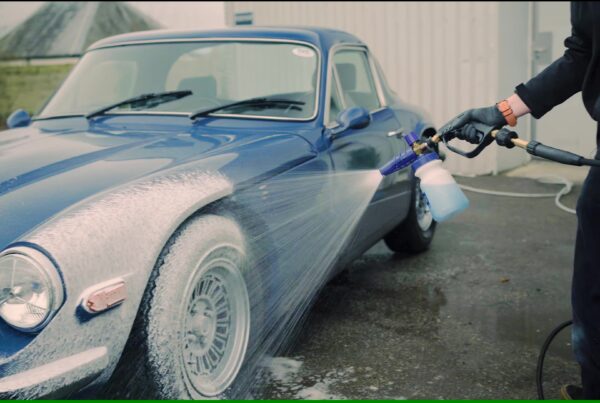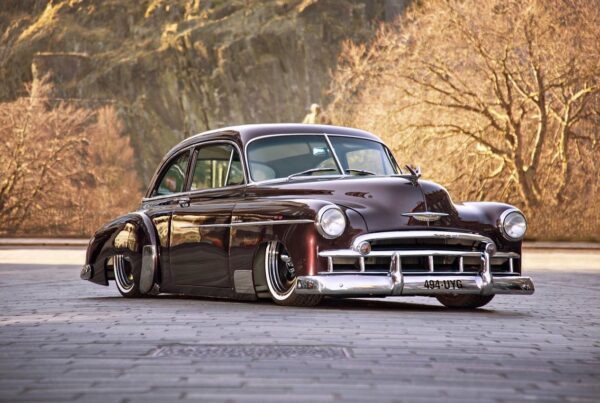From summer 2021, the standard grade fuel available at most filling stations will now contain up to 10% bioethanol. By mixing petrol with 10% bioethanol made from renewable sources, the UK Government states that less fossil fuel is needed, helping to tackle climate change and reduce carbon emissions.
However, higher percentages of transport ethanol in fuel could lead to issues for classic car owners so here some of the important facts you need to be aware of to prepare for the widespread introduction of E10 fuel.
Changes to the petrol you will see at the pumps
Transport ethanol is a biofuel made from a renewal source that has been added into petrol at up to 5% volume (E5) for many years. Then in 2013, retailers were allowed to sell petrol containing up to 10% ethanol by volume (E10) should they choose to. Now, from summer 2021, under the renewal energy directive the standard 95 octane fuel available at most filling stations in England, Scotland and Wales will become E10.
Most petrol stations in the UK offer two grades of petrol. The standard 95 octane will now become E10, and the super unleaded 97+ octane will remain E5. But for the filling stations at are small, rural, or remote, they may only sell one grade of petrol, either E5 or E10.
Look out for the new circular E10 or E5 labelling on the pumps and nozzles which look like this:

Image source: E10 petrol explained – GOV.UK (www.gov.uk)
This change applies to petrol only. Diesel will not be changing.
What does E10 fuel mean for classic vehicles?
Older and classic vehicles were never intended for ethanol fuel blends. Although many can tolerate low levels, it’s important to be aware of how high levels of ethanol can damage your classic. For this reason, it is recommended that older and classic vehicles continue to use E5 97+ octane fuel which will remain available under the super grade. Its also beneficial to regularly check the condition of your fuel tank and fuel lines.
E5 97+ octane super grade fuel will continue to be available at larger filling stations, so it is important to check before you fill up.
It is worth being aware that vehicles built as late as 2000 could still be affected. You can check to see if your day-to-day modern vehicle is compatible here: Check if your vehicle can run on E10 petrol – GOV.UK (www.gov.uk).
E10 is already used commonly across Europe, so if you are planning a European road trip in your classic car, we suggest considering whether your vehicle is compatible and whether you need to make any adjustments before you travel.
How E10 fuel effects older vehicles
Long term storage of petrol-ethanol mixtures, for example if your car is left unused over winter, can become acidic and lead to corrosion in the fuel system, degrading rubber fuel hoses, gaskets and seals, so it may be helpful to drain the fuel tank before laying up your vehicle.
Ethanol’s high solvency action has the potential to strip the insides of components and partially dissolve rubber and resin, which could lead to blockages elsewhere. Fuel filters and jets could become blocked by debris.
E10 fuel has a leaning effect and the fuel strength becomes slightly weaker. You might feel this change as a loss of power, or fuel economy.
There is an increased risk of vapour lock problems due to the lower boiling point of ethanol. If you are already feeling the effects of these problems, increased levels of ethanol in the fuel might exacerbate them.
Moving over to two wheels, higher levels of ethanol can destroy internal sealants applied to tanks, and cause the resin used on some pre-70’s fibreglass motorcycle fuel tanks to start melting into the petrol. Eventually, you may see the fuel tank bubble and blister before springing a leak. For Scooterists, it may be worth investigating an ethanol equaliser to manage the change.
This might sound rather alarming, but its worth checking the condition of your tank and fuel lines regularly and if necessary, upgrading to ethanol compatible components.
Car clubs are great places to find out information. One club that is proactive in advising its members is the Triumph Sports Six Club. Not only does the club offer expert advice, but they also sell ethanol friendly fuel components including ethanol proof replacement fuel hose and Ethanolmate, an ethanol protection additive.
These may not be cheap, but it’s a small price to pay for being able to use your pride and joy on the road for years to come.



